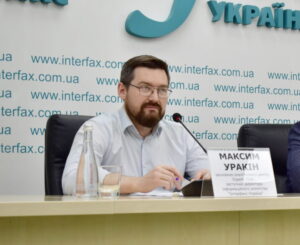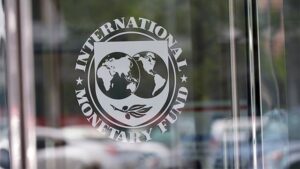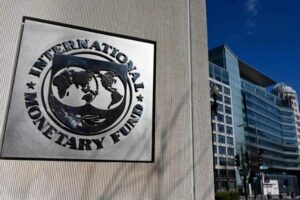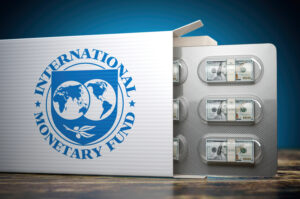
Ukraine could become a European lion in terms of economic growth, but it must continue with the necessary reforms, emphasized International Monetary Fund Managing Director (IMF) Kristalina Georgieva during a discussion on the project “Ukraine: At the Forefront of the Future,” organized by the Victor Pinchuk Foundation in Davos on the sidelines of the World Economic Forum.
“Electricity and heating are still subsidized… We know why the country does this, but it needs to be eliminated. There is still work to be done in terms of the fiscal situation. We are currently looking at how to make the distribution of the tax burden more equitable. It’s not easy, but it needs to be done,” she said.
“I look back on my country’s history and can tell you that it was very painful. After the euphoria of the disappearance of communism came the harsh reality that economic recovery requires sacrifices. Therefore, this is the number one issue — unfinished business,” the IMF chief emphasized, recalling Bulgaria’s experience.
Georgieva noted that it is also necessary to remove all obstacles to the dynamism of the private sector, and drew particular attention to security and the availability of labor.
According to her, during a meeting with business leaders in Kyiv last week, some of them raised the issue of access to labor, which needs to be resolved, above the issue of security. The IMF chief said that the Fund is ready to assist with practical issues such as the return of Ukrainians home, solving the problem of structural unemployment, and integrating veterans.
She added that it is also incredibly important for Ukraine to complete its accession to the European Union within a reasonable time frame, because this is a magnet for the Ukrainian economy to fully integrate into Europe.
“Third, you must believe in yourself like a lion. So get up in the morning and roar. Confidence matters. And I tell you from my own experience, from Bulgaria’s experience, that it will not be easy. But if you have that confidence and you demonstrate it day after day, if you put aside internal disputes, if you bury corruption for good, of course you will succeed,” Georgieva summed up the tasks.
As for achievements, she noted that during the war, Ukraine managed to achieve better results in reforms than before the war, including eight reviews of the four-year extended financing program launched in the spring of 2023.
As reported, under the EFF program, the Ukrainian government has committed to adopting a roadmap for the gradual liberalization of the gas and electricity markets within six months after the end of martial law, with a time-bound implementation plan for the period after its repeal.
“Such a roadmap is also part of the EU-Ukraine Plan and will cover reforms of special obligations (PSO), plans for a gradual increase in tariffs/tariff methodology, mechanisms for resolving the debt problem, as well as a comprehensive scheme to protect the most vulnerable households,” the program stated.
In turn, the IMF noted in mid-2025 that gas and electricity tariffs for the population cover about half of the market price.
At the end of last year, Ukraine and the IMF reached a staff-level agreement (SLA) on a new four-year program, which could theoretically be reviewed by the Fund’s Board of Directors in February this year, according to Communications Director Julia Kozak.

This article presents key macroeconomic indicators for Ukraine and the global economy as of the end of April 2025.
The analysis is based on current data from the State Statistics Service of Ukraine (SSSU), the National Bank of Ukraine (NBU), the International Monetary Fund (IMF), the World Bank, and leading national statistical agencies (Eurostat, BEA, NBS, ONS, TurkStat, IBGE).
Maksim Urakin, Director of Marketing and Development at Interfax-Ukraine, Candidate of Economic Sciences and founder of the Experts Club information and analytical center, presented an overview of current macroeconomic trends.
Macroeconomic indicators of Ukraine
The first four months of 2025 were marked by weak but still positive economic growth for Ukraine. According to the NBU’s estimates, real GDP grew by about +0.5% year-on-year, and the State Statistics Service’s preliminary calculations later revised the dynamics to about +0.9% year-on-year and approximately +0.7% quarter-on-quarter. In the context of full-scale war, constant threats to infrastructure and logistics, a shortage of long-term capital, and limited investment programs, this primarily means maintaining the functionality of the economic system.
“Half a percent or even a percent of growth is not about acceleration, but about endurance. We are seeing a revival of domestic demand in trade, logistics, and certain high-tech niches. But this is essentially a recovery “on the spot”: without a massive investment impulse, without an expansion of value-added exports, without accessible long-term resources, banks and businesses will not be able to scale up. We need to move from survival to development — through investment, industrial projects, and an export ecosystem,” emphasizes Maksim Urakin.
Inflationary pressure is slowly easing. Annual inflation in April was estimated at around 13.1% y/y after 14.6% in March; the National Bank kept its key rate at 15.5%, combining inflation targeting with currency market stabilization.
“Monetary policy in 2025 is about balance. If we tighten too much, we will stifle business activity and lending; if we loosen too much, we will get a new wave of inflation and pressure on the exchange rate. The NBU’s task is not simply to “hold” the rate, but to synchronize with fiscal policy, IMF programs, and the pace of external revenues so that every hryvnia of reserves works toward recovery rather than plugging operational holes,” the expert notes.
Foreign trade remains a weak link. In January–April 2025, exports of goods were estimated at about $13.31 billion, imports at about $24.82 billion, and the negative balance at about $11.51 billion. Structurally, imports are made up of energy carriers, equipment, transport, and chemicals, while exports continue to depend on raw materials and semi-finished products.
“This is not a situational but a structural deficit. As long as we import energy-intensive goods and technological components and export raw materials, the risk to the balance of payments will not disappear. The solution lies in creating production chains within the country, localizing components, advancing the development of logistics and port infrastructure, insuring military risks, and insuring export credits. We need a policy of export industrial transformation, not just “VAT refunds,” emphasizes Maksim Urakin.
International reserves remain a positive buffer, reaching a historic high of about $46.7 billion on May 1, 2025. The growth was ensured by inflows from partners and a reduction in net interventions by the NBU.
“Reserves of over $40 billion are a safety net, but they are not the country’s wealth. Reserves are a credit of trust that must be converted into industrial modernization. If we dissolve this resource in consumption and imports, it will run out, and structural problems will remain. If we direct it towards financing exports, investment insurance, infrastructure, and technology, we will get a multiplier and productivity growth,” the economist emphasizes.
The debt burden also remains high: the total public and guaranteed debt as of April 30, 2025, was estimated at about UAH 7.48 trillion (equivalent to almost $180 billion). This supports budget stability “here and now,” but makes coordination with international programs, debt restructuring, and the launch of projects that generate foreign exchange earnings critically important.
“Debt is not the enemy when it works for development. Our test of maturity is to convert debt resources into productive investments rather than consumption. We need transparent project pipelines: from feasibility studies to long-term money under state guarantees, from export insurance to industrial parks and clusters. This is the only way we will break the inertia of import dependence,” concludes the founder of Experts Club.
Global economy
At the start of the second quarter of 2025, the world is moving in a mode of moderate growth with increased uncertainty. In its April WEO, the IMF estimated global GDP growth in 2025 at around 2.8% with inflation slowly subsiding but uneven demand geography. In the US, real GDP in the first quarter, based on annualized methodology, declined by approximately 0.3% q/q due to “re-imports” and weaker government spending, while core PCE inflation in April remained at around 2.2% y/y, allowing the Fed to maintain a cautious stance.
China maintained around +5.3% y/y in the first quarter, but weakness in real estate and consumer caution limit the prospects for acceleration.
The eurozone, according to preliminary estimates at the end of April, added around +0.4% q/q (+1.2% y/y), and the EU around +0.3% q/q, showing the first signs of emerging from prolonged stagnation. The UK was a positive exception among the G7, with approximately +0.7% q/q in the first quarter. Turkey reported strong growth of around +7.4% y/y amid extremely high inflation of around 70% y/y in April, forcing the central bank to maintain a tight policy. India remains the leader among the major economies with around +7.4% y/y at the beginning of the year, with moderate CPI inflation of around 3.3% in April.
Brazil posted around +0.8% q/q (+2.6% y/y) in the first quarter, but IPCA inflation rose to around 5.5% y/y, limiting the scope for rapid policy easing.
The global picture is a mosaic of different speeds and different risks. The US is technically having a weak quarter, but domestic demand is still holding up; Europe is showing a smooth recovery without a breakthrough; China is on track for growth but needs a new model of domestic demand; India is the flagship of dynamism and innovation; Turkey has paid for its momentum with inflation; Latin America is balancing between regulation and stimulation. For Ukraine, it is not only the figures of its partners that are important, but also their policies: where they buy more steel and food, where they build logistics and energy infrastructure, where opportunities open up for suppliers of engineering products. Our task is to predict not past but future demand and occupy a niche before someone else does. This means export risk insurance, fast customs corridors, long-term money for modernization, cluster specialization, and, most importantly, discipline in execution. Without this, we will remain a country of imports and large reserves that are melting away. With this, we can become a country of exports and large projects that work,” summarizes Maksim Urakin.
Key conclusions
In summary, at the beginning of the second quarter, the Ukrainian economy is in a phase of sustained equilibrium: modest growth, slowing inflation, and record reserves are counterbalanced by a deep trade gap and high debt burden. The solution lies in accelerating structural changes: investment in industry and logistics, high value-added exports, coordination with international programs, and transforming debt resources into a driver of productivity. As Maksim Urakin emphasizes, “the window of opportunity for transformation is already open — the only question is whether we will be able to pass through it quickly enough.”
Source: https://interfax.com.ua/news/projects/1101077.html

The International Monetary Fund (IMF) has revised downward its forecast for Ukraine’s economic growth in 2025, lowering it by 0.5 percentage points (p.p.) from the previous forecast to 2-3%, according to a press release from the Fund based on the results of the mission for the seventh review of the Extended Fund Facility (EFF).
“Real GDP growth is estimated at 3.5% in 2024, but is expected to slow to 2-3% in 2025, reflecting unfavorable factors related to labor market constraints, damage to energy infrastructure, and Russia’s ongoing war in Ukraine,” the release said following the staff-level agreement (SLA) on Friday.
Earlier this week, the European Bank for Reconstruction and Development (EBRD) downgraded its forecast for Ukraine’s economic growth in 2025 to 3.5%, while last September it expected it to reach 4.7%.
As reported, the World Bank (WB) in its Global Economic Prospects published on January 17 downgraded its forecast for Ukraine’s GDP growth in 2025 to 2% from 6.5% in the June report, but improved it for 2026 to 7% from 5.1%.
The National Bank of Ukraine also changed its forecasts. Given the security risks and the difficult situation on the labor market, the NBU lowered its real GDP growth forecast for 2025 from 4.1% to 3.6% in late January, while the state budget for 2025 is based on a 2.7% GDP growth forecast.

Ukraine has received $1.1 billion from the IMF, Prime Minister Denys Shmyhal said.
“This is the sixth tranche under a joint program under the EFF Extended Fund Facility,” Shmyhal wrote on his Telegram channel.
According to him, the funds have already been transferred to Ukrainian accounts and will be used to finance critical budget expenditures.
The Prime Minister said that Ukraine has already received $9.8 billion from the IMF under this program.

The International Monetary Fund (IMF) expects Ukraine’s current account deficit to widen from 5.4% of GDP in 2023 to 8.1% and 14.3% of GDP in 2024 and 2025, respectively, according to the updated World Economic Outlook (WEO) released on Tuesday.
Earlier, in June of this year, the Fund estimated the current account deficit next year at 5.8% of GDP, and in 2026 – at 6.9% of GDP.
The IMF attributes the widening of the current account deficit to the persistent need for imports during the war, the impact of labor shortages on exports, and a decrease in grant funding. In the Fund’s view, these negative factors will outweigh the favorable impact of improved shipping routes, private remittances, and debt restructuring.
In the materials published after the fifth review of the EFF Extended Fund Facility program, it is noted that the current account deficit in the first half of 2024 increased to $8.6 billion compared to $1.8 billion in the first half of last year. The IMF cited a decline in grants from partners as the main reason.
Meanwhile, the trade balance in goods deteriorated by 8% yoy as high imports from the defense and energy sectors offset exports (especially of agricultural products and iron ore). The balance of services, on the other hand, improved with the end of the border blockades and a reduction in cash withdrawals by Ukrainians abroad.
The IMF predicts that after falling by 15.4% in 2023, exports will grow by 15.7% in 2024 and by another 6.2% in 2025. At the same time, imports, which grew by 21.5% in 2023, will increase by another 14.4% this year and by 7% next year.
According to the Fund’s estimates, the growth of foreign direct investment this year will slow to 2% of GDP from 2.6% of GDP last year, and in 2025 it will only slightly accelerate to 2.1% of GDP.
At the same time, thanks to the continued significant external financial support, the IMF forecasts that the country’s reserves will grow from $40.5 billion last year to $42.6 billion this year and $44.9 billion in 2025.

The IMF Board of Directors on Friday completed the fifth review of Ukraine’s EFF Extended Fund Facility (EFF) program, allowing Ukraine to receive about $1.1 billion (SDR834.9 million) of the 6th tranche, which will be used for budget support.
“Despite the challenging environment, Ukraine’s economy remains resilient and EFF performance remains strong. As of end-June, the authorities had met all quantitative performance criteria and achieved the four structural beacons,” the Fund said in a press release on its website.
After the discussion, IMF Managing Director Kristalina Georgieva said that the total external financing under the 4-year program is raised from $122 billion to $151 billion in the base case and from $144 billion to $187 billion in the negative case due to new commitments under the G7 initiative to allocate $50 billion to Ukraine from the proceeds on frozen Russian assets (“Emergency Loans to Accelerate Ukraine’s Revenue Growth”, ERA).
It is stated that sustainable reforms, mobilization of domestic revenues and timely provision of external support are necessary to ensure macroeconomic stability, restore fiscal and debt sustainability and enhance institutional reforms.
It is specified that the structural beacons related to the abolition of tax exemptions, war-affected state-owned companies, customs reform and public investment management have been implemented, while the implementation of two structural beacons has been postponed to allow more time to complete the reform.
The IMF noted that the economy has been more resilient than expected in the first half of 2024, thanks to continued growth, moderate inflation, and adequate reserves backed by significant external support. However, the outlook for the rest of the year and 2025 has deteriorated since the fourth review, mainly due to prolonged Russian attacks on Ukraine’s energy infrastructure and uncertainty over the war.
“Overall, the outlook remains exceptionally uncertain,” the Fund emphasized.
Georgieva said that all quantitative performance criteria are expected to be met at the end of September as well.